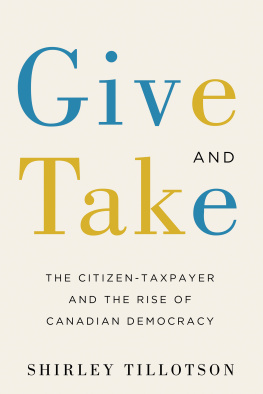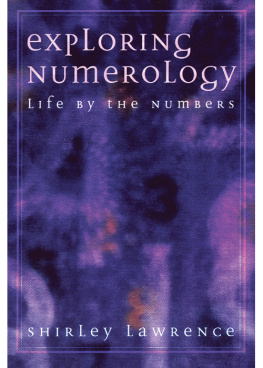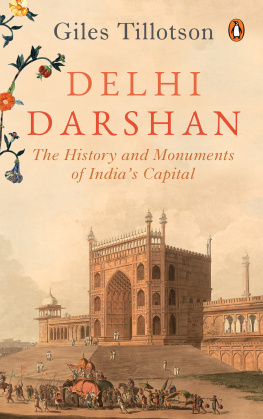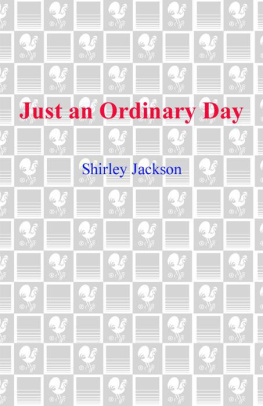Shirley Tillotson - Give and Take
Here you can read online Shirley Tillotson - Give and Take full text of the book (entire story) in english for free. Download pdf and epub, get meaning, cover and reviews about this ebook. publisher: UBC Press, genre: Politics. Description of the work, (preface) as well as reviews are available. Best literature library LitArk.com created for fans of good reading and offers a wide selection of genres:
Romance novel
Science fiction
Adventure
Detective
Science
History
Home and family
Prose
Art
Politics
Computer
Non-fiction
Religion
Business
Children
Humor
Choose a favorite category and find really read worthwhile books. Enjoy immersion in the world of imagination, feel the emotions of the characters or learn something new for yourself, make an fascinating discovery.
- Book:Give and Take
- Author:
- Publisher:UBC Press
- Genre:
- Rating:4 / 5
- Favourites:Add to favourites
- Your mark:
- 80
- 1
- 2
- 3
- 4
- 5
Give and Take: summary, description and annotation
We offer to read an annotation, description, summary or preface (depends on what the author of the book "Give and Take" wrote himself). If you haven't found the necessary information about the book — write in the comments, we will try to find it.
Give and Take — read online for free the complete book (whole text) full work
Below is the text of the book, divided by pages. System saving the place of the last page read, allows you to conveniently read the book "Give and Take" online for free, without having to search again every time where you left off. Put a bookmark, and you can go to the page where you finished reading at any time.
Font size:
Interval:
Bookmark:

An outstanding achievement. Tillotsons book is a full-scale treatment of modern taxation in Canada. Her findings and methodology bring tax history onto a new plane. Not many books generate the intellectual force to reshape a subject. Give and Take is one that does.
Romain Huret, author of American Tax Resisters
Taxes are the price we pay for civilization. But the social contract underpinning our (sometimes grudging) willingness to pay them is complex, fragile, and should never be taken for granted. Shirley Tillotsons rollicking history of Canadian tax debates reveals precisely how that social contract was constructed and why Canada is a much better place for it.
Jim Stanford, Harold Innis Industry Professor of Economics, McMaster University
Shirley Tillotsons brilliant book rescues the history of taxation from the grip of technical, abstract detail and gives it a human face. Here is cultural and social history at its best, written in an engaging style. She shows how tax payers and collectors held conversations over whether to comply or resist and how they debated the nature of democracy and citizenship. This book is a major contribution to the history of Canada with wider implications for understanding other twentieth-century societies.
Martin Daunton, professor emeritus of economic history, Cambridge University
Rather than relying on ministerial statements and Department of Finance documents, Tillotson delves into the archives and studies the conversation between tax authorities and tax payers, revealing emotion as well as logic. In other words, this is a very human history.
Joe Martin, director of Canadian Business and Financial History, Rotman School of Management
This colourful, convincing portrait of Canadian tax culture masterfully illustrates how tax policy decisions reflected larger political and social currents of change, and the power of taxation to define the meaning of citizenship and the role of government. Tillotson has a talent for depicting key characters and the emotions aroused by debates over taxation. She brings a delightful humour and wit to the telling of these stories.
Lisa Philipps, professor of taxation law, Osgoode Hall Law School
Those interested in future reform will welcome this detailed and fascinating history of the Canadian tax system from the introduction of the national income tax in 1917 to the Carter Commission and the 1971 federal budget.
Michael Veall, editor, Canadian Public Policy
Canadians urgently need good tax talk, and Shirley Tillotson delivers in this brilliant and deeply researched history of taxation, society, and democracy in Canada. This important book raises the level of an old and continuing conversation about taxation, citizenship, and the nation-state a conversation that resounds through the many chambers of the nations past and embraces all of us.
Eric Sager, professor emeritus, History, University of Victoria
Oliver Wendell Holmes said, I like to pay taxes. With them, I buy civilization. Shirley Tillotson says, With taxes, we try to buy democracy, too. In Give and Take, she documents the what and when of twentieth-century-Canadian income tax, but she also explores how taxes redefined Canadians relationship with government and with citizenship. The results? Well, she says, mixed.
Christopher Moore, author of Three Weeks in Quebec City: The Meeting That Made Canada
Give and Take is the very best history we have of Canadian taxation in the twentieth century, one that provides a wonderful model for studying the relationship between public finance and society in a modern liberal democracy. Tillotsons brilliant use of primary sources sets a high bar for future explorations of the complex and intertwined roles of civic culture and class identity in shaping tax policy.
W. Elliot Brownlee, research professor of history, University of California, Santa Barbara
The Citizen-Taxpayer and the Rise of Canadian Democracy
Shirley Tillotson
$ $
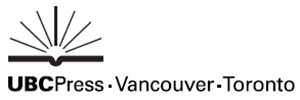
UBC Press 2017
All rights reserved. No part of this publication may be reproduced, stored in a retrieval system, or transmitted, in any form or by any means, without prior written permission of the publisher, or, in Canada, in the case of photocopying or other reprographic copying, a licence from Access Copyright, www.accesscopyright.ca .
Library and Archives Canada Cataloguing in Publication
ISBN 9780774836722 (hardback)
ISBN 9780774836746 (pdf)
ISBN 9780774836753 (epub)
ISBN 9780774836760 (mobi)
Cataloguing-in-publication data for this book is available from Library and Archives Canada.

UBC Press gratefully acknowledges the financial support for our publishing program of the Government of Canada (through the Canada Book Fund), the Canada Council for the Arts, and the British Columbia Arts Council.
This book has been published with the help of a grant from the Canadian Federation for the Humanities and Social Sciences, through the Awards to Scholarly Publications Program, using funds provided by the Social Sciences and Humanities Research Council of Canada.
Copy editor: Dallas Harrison
Indexer: Susan Brown
Cover designer: David Drummond
UBC Press
The University of British Columbia
2029 West Mall
Vancouver, BC V6T 1Z2
www.ubcpress.ca
Talking Tax
Income taxes require a high level of taxpayer morale and cooperation if they are to be collected cheaply or adequately.
Henry Simons, American economist
Over the years, there has been scarcely any relationship between government and people which has been more sensitive than taxation, and, indeed, which has caused more civil bloodshed. If you people [Americans] had not been so supersensitive to a tax on tea, I would not now be speaking to you from a foreign land.
Kenneth LeM. Carter, Canadian accountant
B IRDS DO IT. BEES DO IT. Even chimpanzees do it. They all pay taxes. Everywhere I look there are stories of non-humans stumping up a share of their favourite foodstuff (or some other valuable commodity) for use by their group. What these reports usually fail to say, though, is whether there is a bailiff chimp ready to seize property or a chimp leader making a pitch for tax compliance. In these Just So stories, no one points out how hard chimp governments have to work to raise revenue or how often chimps debate what is fair taxation.
We Canadians scarcely know more about our tax history than we know about the tax practices of chimps in the wild. In a 1959 interview, the dean of Canadian economic and political history, Donald Creighton, blithely Whatever the good qualities of that literature, and there are many, it treats taxpayers (if they are discussed at all) as abstractions.
I want to put real human beings into our tax history and, in the process, show how dramatic, engaging, and sometimes amusing this history can be. Why should taxation not be interesting? Taxation is about how we take on the problems of collective life, figuring them out in light of our times and concocting solutions to them, sometimes ad hoc and foolish, occasionally far-sighted and even brilliant. Tax history need not be a dense and abstract account of technical adjustments and electoral calculations. It involves police raids and trials, impassioned orations, and cunning tax dodges. Taxation is not simply something done by the powerful to the weak: although taxes have sometimes been collected at gun point, even in Canada, and some sort of force always backs the tax collectors demands, governments in modern Canada know that levying a productive tax, with modest collection costs, requires negotiation. The tax laws themselves are negotiated, of course, but even those of us who never get close to the legislative process still make decisions about taxpaying. If a tax can be evaded or avoided, then anyone who pays it has decided to pay it, more or less deliberately. We might notice arriving at that decision when we fill in an honest income tax return. But we also decide, usually out of prudence, to pay less obviously self-assessed taxes, such as a sales tax or customs tariff. For example, smugglers, participants in cash transactions, and purchasers of dubious second-hand goods have decided not to pay certain taxes. Our taxpaying or -dodging decisions become routine. But there are turning points, moments of change, when the normal give and take is unsettled. And that is where we find our history as taxpayers.
Font size:
Interval:
Bookmark:
Similar books «Give and Take»
Look at similar books to Give and Take. We have selected literature similar in name and meaning in the hope of providing readers with more options to find new, interesting, not yet read works.
Discussion, reviews of the book Give and Take and just readers' own opinions. Leave your comments, write what you think about the work, its meaning or the main characters. Specify what exactly you liked and what you didn't like, and why you think so.

